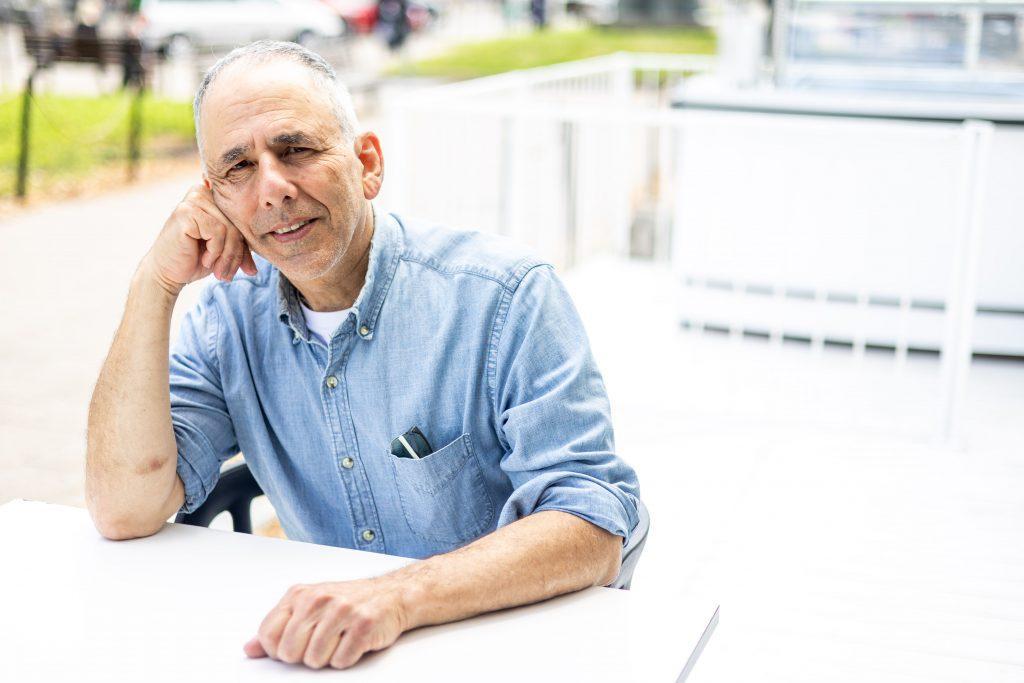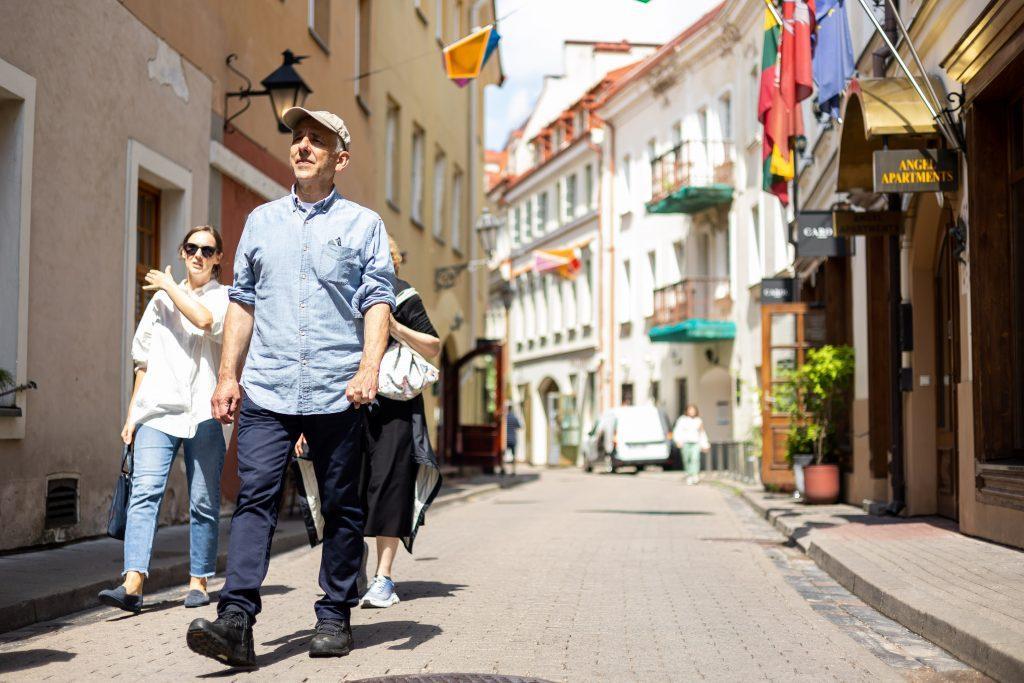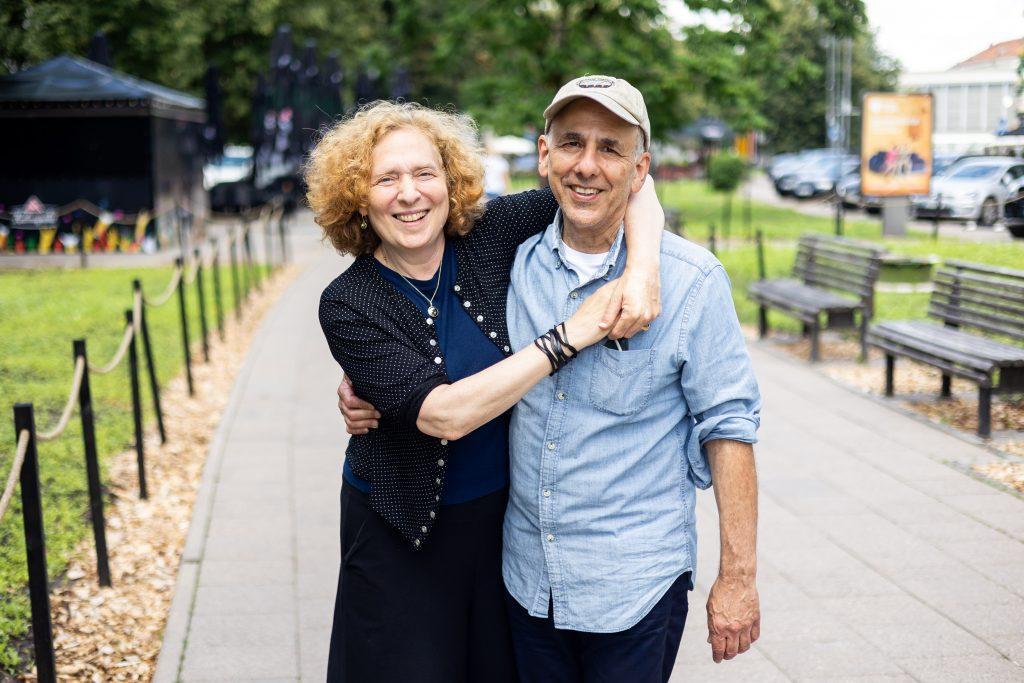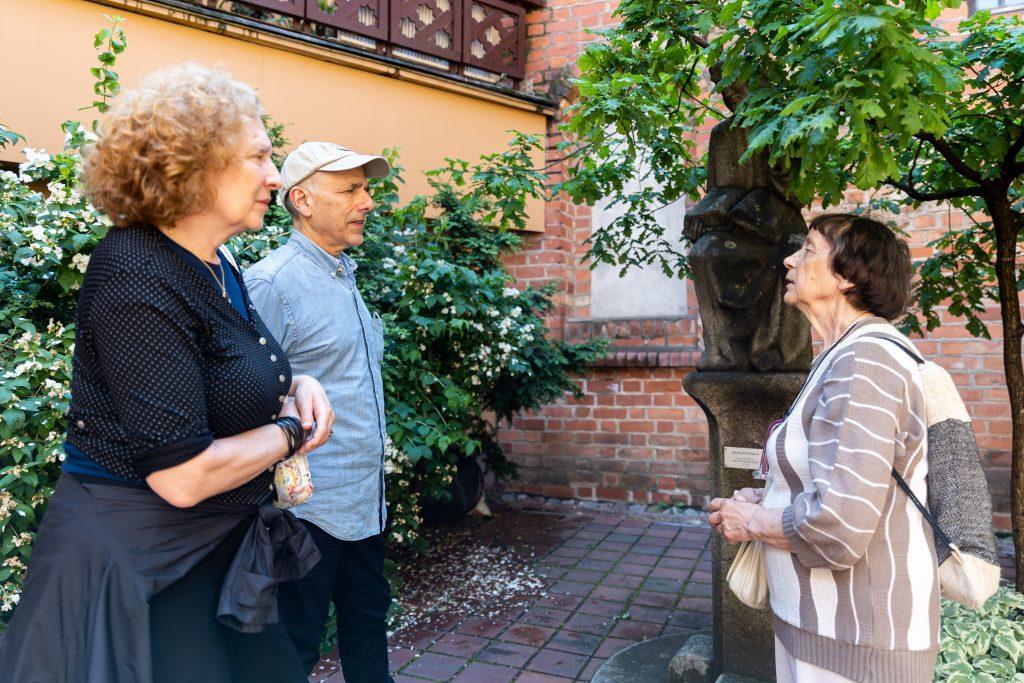US composer Michael Gordon will compose music for a courtyard in Vilnius related to Jewish history
Michael Gordon, one of today’s most prominent composers, visited the capital of Lithuania in July with the unique goal of finding a place for an unexpected musical composition. He and six other composers from around the world are part of the Music for Vilnius project, which will see them create unique music for selected public spaces in the city to celebrate Vilnius’ 700th birthday.

Vilnius: stylish, full of culture and history
Just outside Vilnius, in the then Polish town of Zdzięcioł (now in Belarus, renamed Dziatlava), the father of the famous American composer Michael Gordon grew up, and later, in the 1930s, came here to learn Yiddish and dream of becoming an engineer. “This is my fourth trip to Vilnius, and the shortest. The first time I came here was twenty years ago, and I remember that Vilnius looked very different then. On previous visits, I had already enjoyed wandering the streets of the Old Town, but now I wanted to get to know more about the places where Jewish cultural and historical sites were located,” says Mr. Gordon.
More information about the project
While walking with a guide through the sites of the Holocaust, the composer discovered a courtyard in the Old Town, to which he decided to dedicate his work: “I really liked this place, which has a wonderful panoramic view. It has a sculpture reminiscent of the Jewish ghetto. Another thing that attracted me there was the music school, which is like the light side of the history of the courtyard, where some painful things happened. I will create music for this space, which will sound great here, because the sound will spread powerfully between the walls, the corners of the house… There is a lot of cement here and you can almost hear the echo of your steps when you walk”, points out the composer. He has already foreseen that 9 trombones will play in the piece.

Michael Gordon has been environmentally conscious for many years and is a vegetarian, so he was struck by the awareness of Vilnius residents: “For example, in many places the grass is not cut, it is allowed to grow freely in the city. I don’t think there is such an advanced awareness in the US, they are just starting to pay attention to the environment. Vilnius is a very stylish city for me. It has a different style, it’s not metropolitan, and you can immediately see that there is a lot of care for culture and history. I wish it another 700 years of peace, happiness and, of course, security”, says the musician.
It wasn’t just the classics that fascinated the composer
As a child with an artistic nature, inspired by the classical music performed by his mother, he wrote a piece for orchestra while still at school, but in parallel he was also interested in popular music. “I think listening to different genres made me realise even then that I was interested in everything I hadn’t heard before”, supposes Mr. Gordon. As a teenager, he wrote songs for a rock band, and later, after earning a Master’s degree in music, he enrolled at Yale University, where he sought to learn about modern music while performing with rock bands in clubs in New York.
While still a student, he co-founded with two composers (Julia Wolfe and David Lang) the Bang on a Can Festival, dedicated to innovative music and the dissemination of new musical ideas, one of the most authoritative events for modern music in America.

The first festival was not held in a concert hall but in an art gallery. “We were young and looking for new ways to present our music. In the mid-1980s, not many people listened to contemporary classical and experimental music. We thought that the formality of the venue was partly to blame: everything was very formal, the musicians were in costumes, the instruments were classical. So, we just started doing 12-hour concerts because we thought that the very long format was a bit less restrictive: you don’t have to just sit, you can move around, dance and meet people. We still do festivals in New York and beyond, and we also have a touring ensemble, Bang on a can All Stars, which has played in Vilnius,” says Mr. Gordon.
His work now ranges from long works for ensembles to orchestral scores and interdisciplinary collaborations. Michael Gordon’s clients include Lincoln Centre, Carnegie Hall, Stuttgart Ballet, orchestras in the US, Europe and Asia, as well as renowned contemporary music festivals.
How music is made
The composer says that for the last ten years he has been thinking about how sound is made and how it travels: “We’re used to sound just coming: we’re used to the concert format, the musicians on stage are playing for us, the sound is coming at us, and it’s flat. And I’m very interested in sounds that come from many points around, I’m interested in how they move in space in different directions. And in the piece I’m going to create for Vilnius, I imagine that 9 trombones could interact with 9 points in space,” the composer reveals behind the scenes. “I’ve always created what I find interesting, or what I’m feeling at the moment, what feels right to me, what the mood is inside. I don’t try to create the same thing or just things that are really for consumption. They are for what I feel, what I am interested in, where I am going. It can be very light and very serious music, and lately I’ve been interested in being in an environment where the music is flowing: then it’s like you’re immersed in it,” explains the composer.

Composers from Japan, Germany, Italy, Austria and Poland are also expected in Vilnius. They will be looking for places that evoke emotions and will dedicate their works to the capital’s anniversary. The composers involved in the Music for Vilnius project will create works specially designed for the spaces of Vilnius, which will become long-term musical installations that will be on display for later viewing. It is hoped that they will not only serve as a musical reminder of the anniversary, but also as an invitation to rediscover the city’s most diverse places. The premieres of the specially commissioned works in 2023 will be accompanied by educational and creative workshops, excursions, concerts and other events.
You can find out more about the Music for Vilnius project on the initiative’s website www.musicforvilnius.com.
